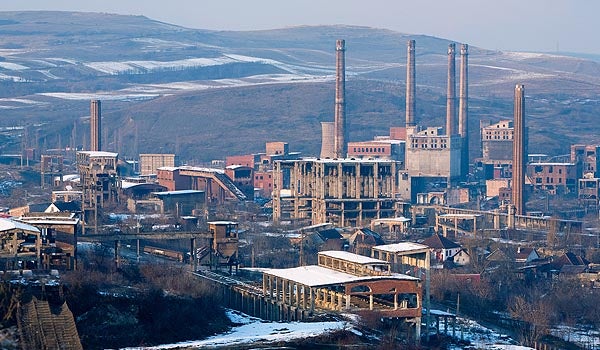
As the new government in Bucharest starts implementing its program - looking for strong, sustainable and equitable drivers of economic growth - I would argue that one of the first areas where the authorities should focus is a continuation of the reform and modernization of Romania's large, state-owned enterprises (SOEs).
With approximately 1200 SOEs in Romania, of which around 300 are majority-controlled by the central government, the SOE sector is the largest in the EU in terms of number of companies. It is also- economically inefficient, with some companies generating large losses.
Through improvements in corporate governance, privatization, and sales of minority stakes, Romania has been successful in enhancing the performance of some SOEs, especially in the energy sector- as shown in the cases of Transgaz, Hidroelectrica, Transelectrica, Romgaz, and Electrica. However, an unfinished restructuring agenda remains - particularly in the transport sector, where a vision and a credible roadmap for improved performance is needed.
While divestiture, privatizations, shares floating, and outright sales should progressively be continued and implemented for many SOEs, the Government will want to retain some form of control over others. There is, however, no reason why poor profitability or poor performance should be tolerated, and there is no excuse for SOEs to continue to operate under a poor governance structure.
Successive governments over the past five years have focused on strengthening the corporate governance structure of Romania's state-owned companies. A legal framework and supporting processes have been put in place to facilitate the recruitment of professionals for SOE boards and management. This framework is not based on political criteria, but rather on leadership, technical skill, and business acumen.
The Romanian authorities have made important progress in this regard. A Government Emergency Ordinance (also known as Ord. 109) was issued in 2011, and finally passed as part of the Law on SOE Governance (Law 111) in May 2016. The new law offers a unitary approach to selecting, promoting and rewarding SOE managers by introducing incentives for performance. It also puts into place a monitoring system for performance so that the government can gauge whether progress is being made and how fast. The process of implementing the new corporate governance law should neither be halted nor reversed.
The focus on depoliticizing and professionalizing SOE boards overseen by sectoral Ministries has led to some positive results. From 2014-16 the number of companies which professionalized their boards exceeded 25% and this process has started in many other companies.
Romania’s reform of SOE governance is an important step in improving the overall performance of SOEs. These reforms should continue through the implementation of legal provisions and monitoring of results. Building the capacity of the Ministry of Public Finances and line ministries overseeing the SOE reform agenda should also be high on the agenda.
European and international experience demonstrates that SOE performance markedly improves when there is strict adherence to corporate governance rules, a focus on performance rather than clientelism, and genuine competition for success. Germany, France, Austria, Sweden are just some examples of EU countries that have managed to successfully reform their SOE sector.
Accelerating the process of convergence with the EU requires renewed attention to the structural reform agenda, including in the SOE sector. An improved SOE performance will increase Romania’s long-term economic growth potential, create better jobs, and have positive spillover effects on local and regional development - in addition to higher budget revenues.
Similarly to any market actor that competes for success, Romanian SOEs should be steered towards a focus on accountability and performance in the way decisions are made. Romanian policy-makers should play a defining leadership role in drawing a vision for restructuring and long-term economic success of SOEs that includes appropriate mechanisms to monitor and correct policy decisions along the road.
Finally, the public should play a central role in demanding that public resources are spent in a manner that aims to achieve improved social and economic development outcomes for all Romanians, rather than be channeled to address dragging debt challenges of non-performing market players.
I look forward to seeing the continuous implementation and acceleration of this growth agenda, developed by successive Romanian governments over the last several years


Join the Conversation